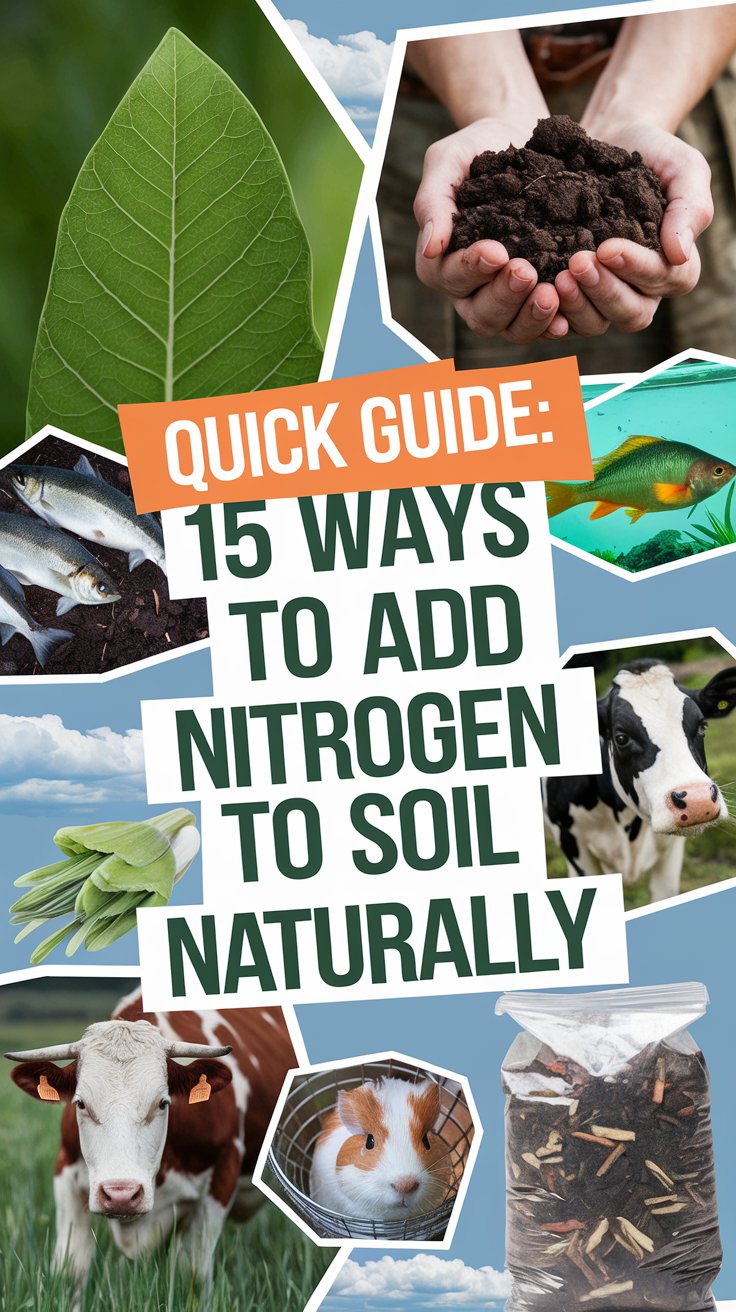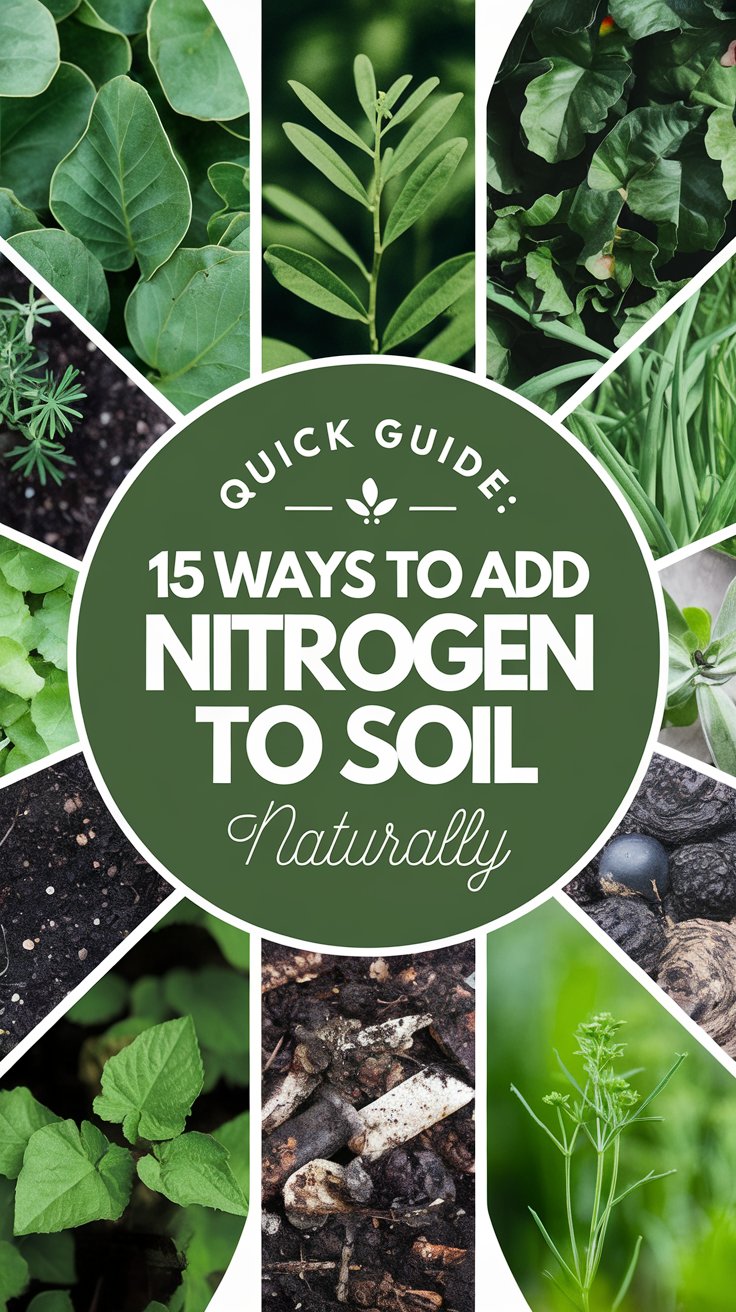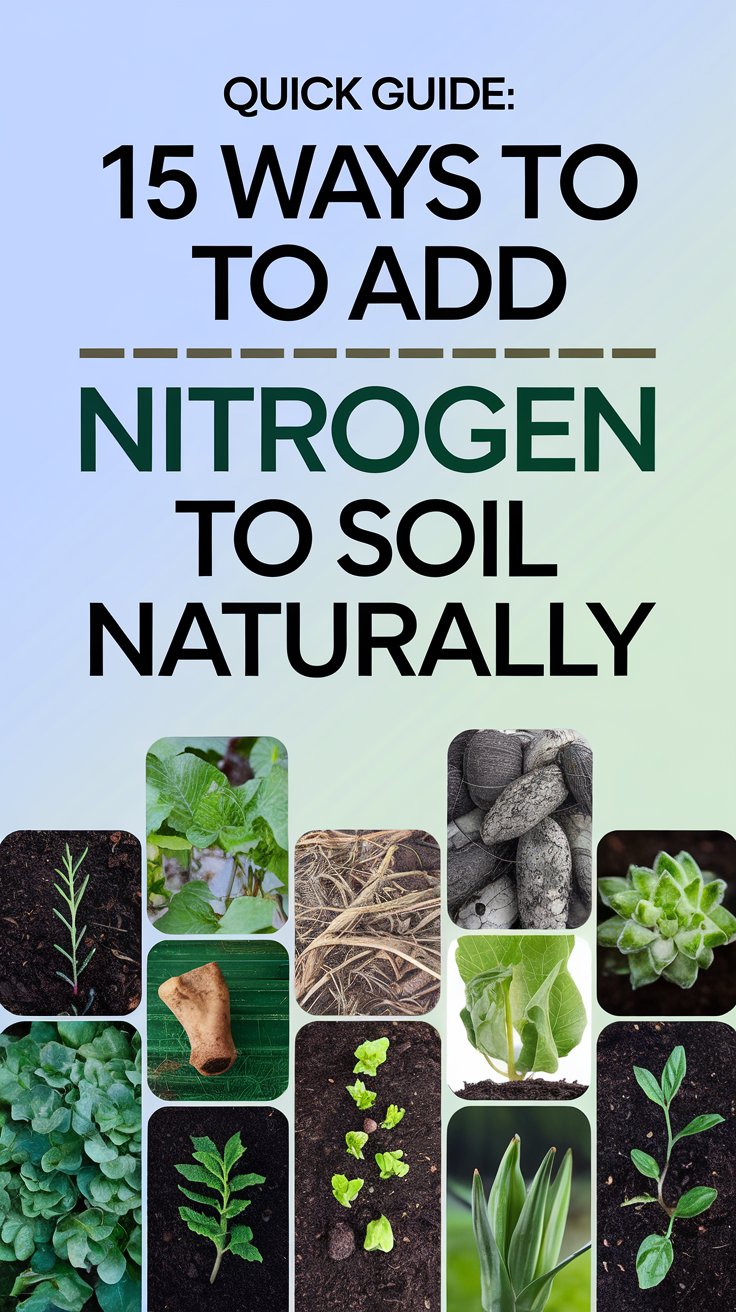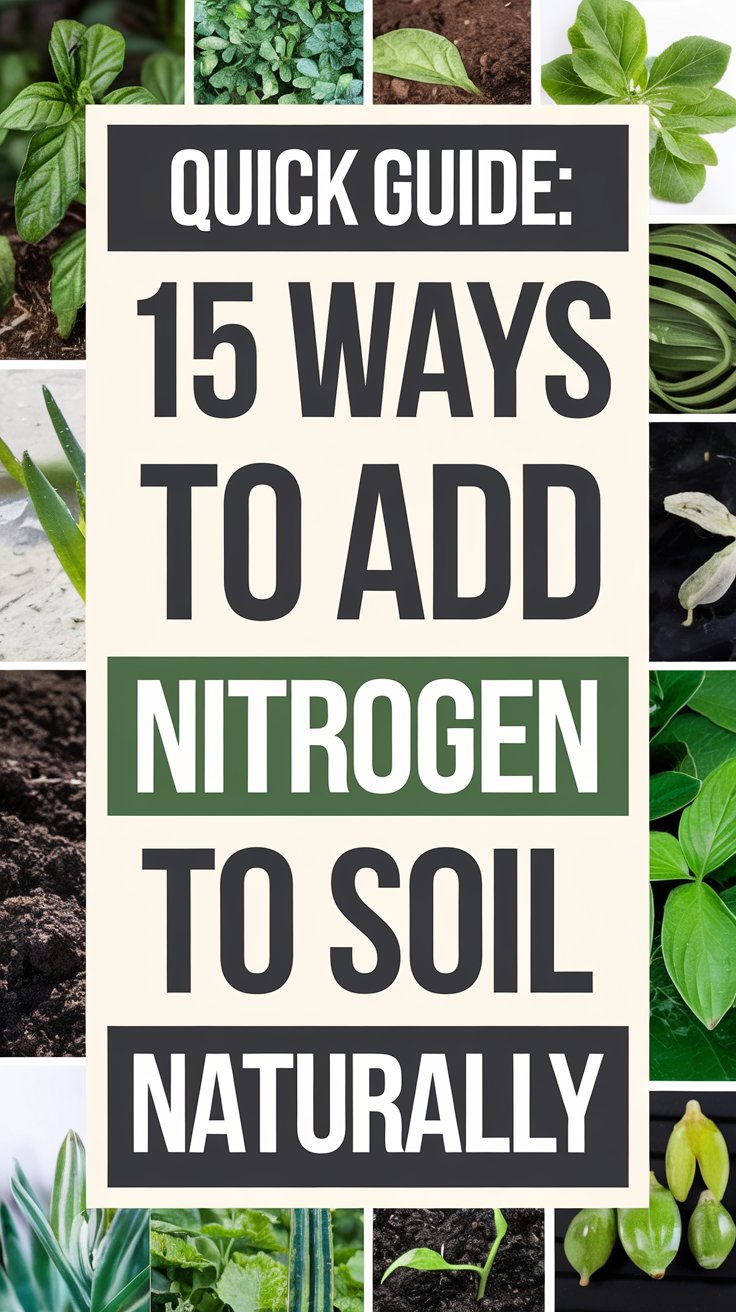Healthy soil is the foundation of a thriving garden, and nitrogen plays a crucial role in supporting plant growth and development. As one of the primary nutrients that plants need, nitrogen is essential for photosynthesis, protein synthesis, and overall plant health. However, purchasing synthetic fertilizers can be expensive and may not align with sustainable gardening practices. Fortunately, there are many natural ways to enrich your soil with nitrogen. In this article, we’ll explore 15 effective methods to add nitrogen to your soil naturally, making it easier for gardeners of all levels to nurture their plants and contribute to a more eco-friendly gardening approach.
Plant Leguminous Cover Crops
One of the best strategies for enriching soil health is to plant leguminous cover crops. These plants not only prevent soil erosion but also have the incredible ability to fix nitrogen from the atmosphere, enriching the soil naturally. Common choices include clover, vetch, and peas. By planting these crops, you can enhance your soil’s nutrient profile without synthetic fertilizers.
Use Compost
Composting is a fantastic way to both recycle organic waste and improve soil fertility. By turning kitchen scraps, yard waste, and other organic materials into compost, you create a nutrient-rich amendment that can boost your soil structure and provide essential nutrients to your plants. Plus, it’s an environmentally friendly practice that reduces waste while supporting your garden.
Incorporate Animal Manure
Another effective way to improve soil fertility is by incorporating animal manure. Whether from cows, chickens, or horses, well-aged manure is packed with nutrients that can significantly benefit your garden. Just make sure it’s well-composted to avoid burning your plants and to reduce pathogens. It’s like giving your soil a healthy multivitamin!
Utilize Fish Emulsion
Fish emulsion is an organic fertilizer derived from fish waste, and it’s a powerhouse of nutrients. It provides a quick-release source of nitrogen and is especially beneficial for leafy crops. Plus, its liquid form makes it easy to apply, allowing for deep root absorption. Your plants will thank you!
Apply Blood Meal
Another excellent nitrogen-rich amendment is blood meal. This byproduct from processing animals is packed with nutrients. It’s a quick-release option that is particularly effective for heavy feeders like tomatoes and corn. Just remember, a little goes a long way, so use it sparingly to avoid over-fertilizing.
Use Alfalfa Meal
Alfalfa meal is a fantastic organic fertilizer that provides nitrogen as well as other micronutrients. It also contains a growth stimulant called triacontanol that can help promote plant growth. Mix it into your soil or sprinkle it around your plants to reap its benefits.
Grow Nitrogen-Fixing Plants
Nitrogen-fixing plants play an essential role in sustainable gardening. By planting species like beans, lentils, or peanuts, you enrich the soil with nitrogen as they grow. Once harvested, their roots will decompose, leaving behind beneficial nutrients for subsequent crops.
Incorporate Green Manures
Consider planting green manures, which are crops grown specifically to be turned back into the soil. Options like buckwheat or rye can improve soil structure and nutrient content when plowed under. They also help with weed suppression and moisture retention, making them a win-win for your garden.
Add Coffee Grounds
Those used coffee grounds hanging around in your kitchen can be put to good use in your garden! They can enhance soil structure while adding nitrogen content. They’re especially good for acid-loving plants, so consider mixing them into the soil or using them as a mulch.
Use Soybean Meal
Soybean meal is another nutrient-rich option that adds nitrogen to the soil. It also improves soil structure and encourages beneficial microbial activity. Just like blood meal, it’s important to use it judiciously to provide the right amount of nutrients without overwhelming your plants.
Mulch with Grass Clippings
Grass clippings not only provide a fresh look to your garden but also act as a great organic mulch. They help with moisture retention, suppress weeds, and as they decompose, they contribute valuable nutrients to the soil. Just be careful not to use clippings from chemically treated lawns to ensure your soil remains healthy.
Apply Seaweed Fertilizer
Did you know seaweed can work wonders for your garden? Seaweed fertilizer is rich in minerals and micronutrients that help stimulate plant growth. It also enhances soil health by promoting beneficial microbial activity. It’s an excellent organic choice for all kinds of plants.
Incorporate Cottonseed Meal
Cottonseed meal is another organic option rich in nitrogen and can help improve soil structure. It’s especially useful in acid soils and is a great choice for flower and vegetable gardens alike, providing a sustainable boost to your plants.
Use Worm Castings
Worm castings are a gardener’s secret weapon. These nutrient-rich, organic materials not only boost soil fertility but also improve its structure and moisture retention. They introduce beneficial microorganisms to the soil, enhancing plant health and productivity. Worm castings can be mixed into the soil or used as a top dressing.
Practice Crop Rotation
Lastly, practicing crop rotation is vital for maintaining soil health. By varying the types of crops planted in a specific area each season, you can prevent nutrient depletion and reduce pest and disease buildup. This sustainable practice not only maximizes soil fertility but also promotes biodiversity in your garden.
Conclusion
Incorporating natural methods to add nitrogen to your soil can promote a healthier garden and contribute to a sustainable gardening practice. By using techniques such as planting nitrogen-fixing crops, incorporating compost, and utilizing organic fertilizers, gardeners can create a nutrient-rich environment that supports plant health. Explore these 15 methods and find the ones that work best for your gardening style. By nurturing your soil naturally, you’ll not only enhance your garden’s productivity but also contribute positively to the environment. Happy gardening.









